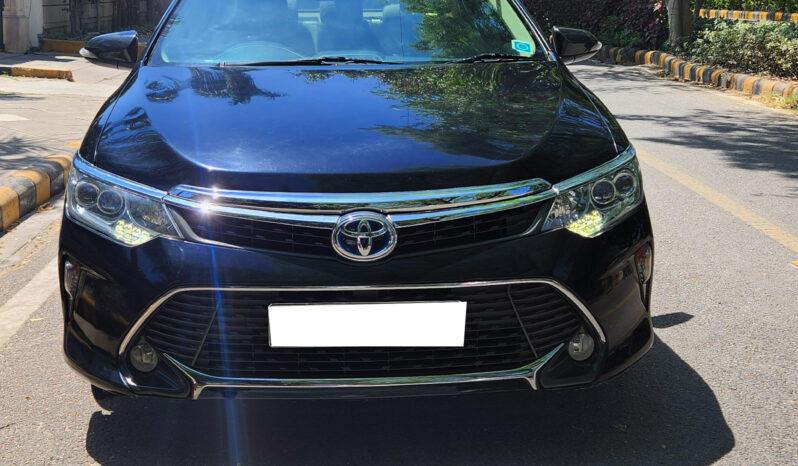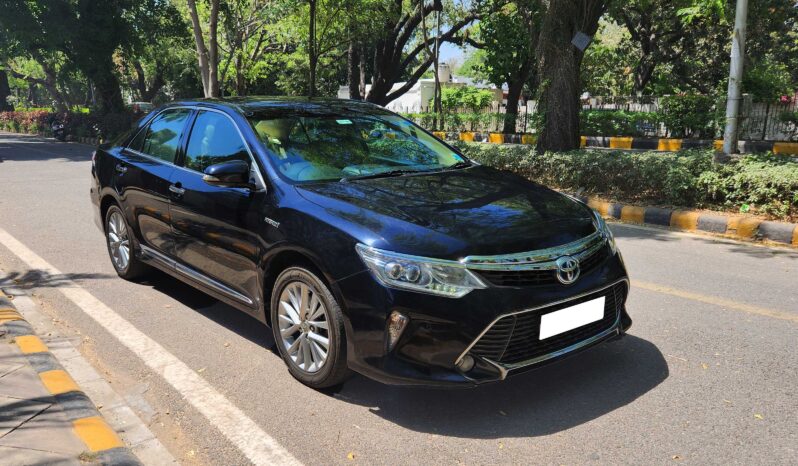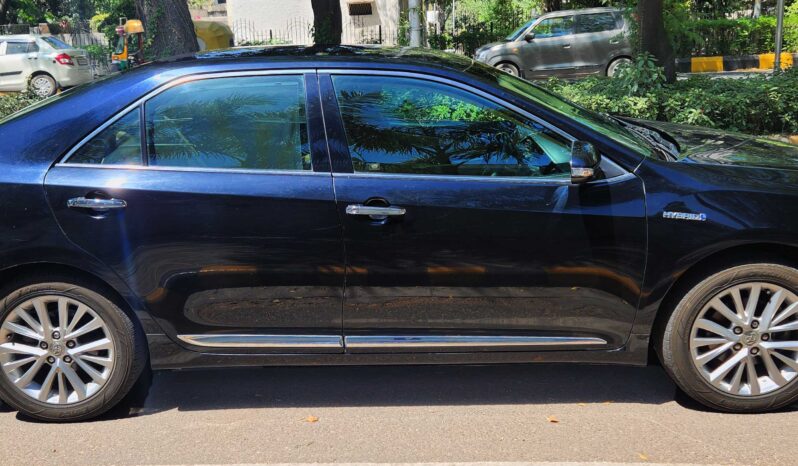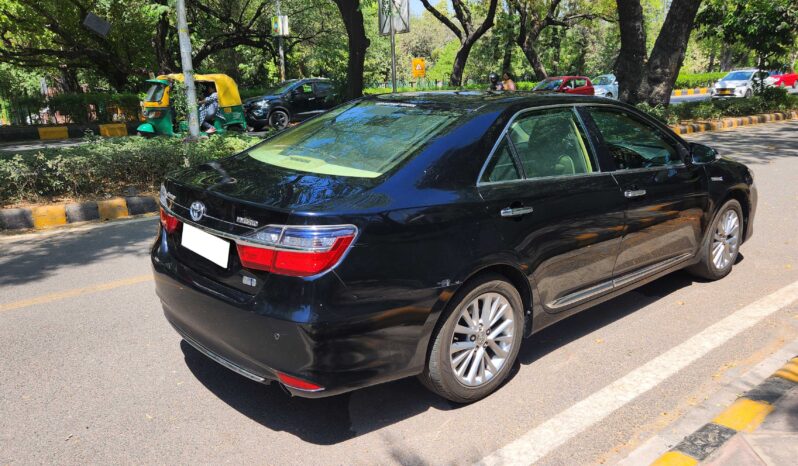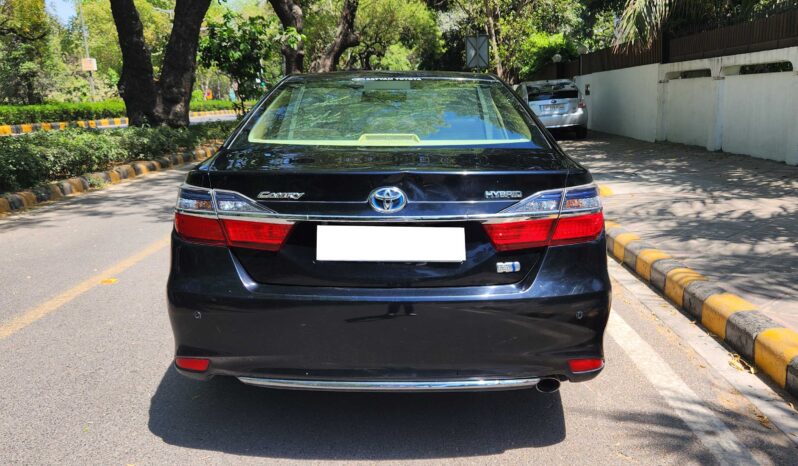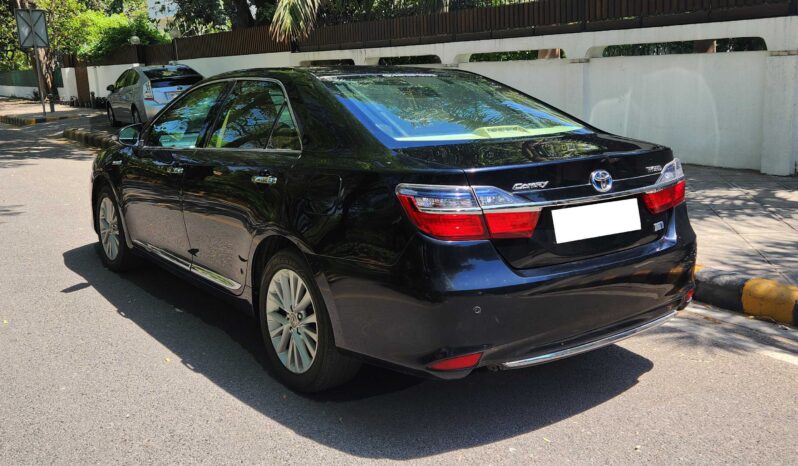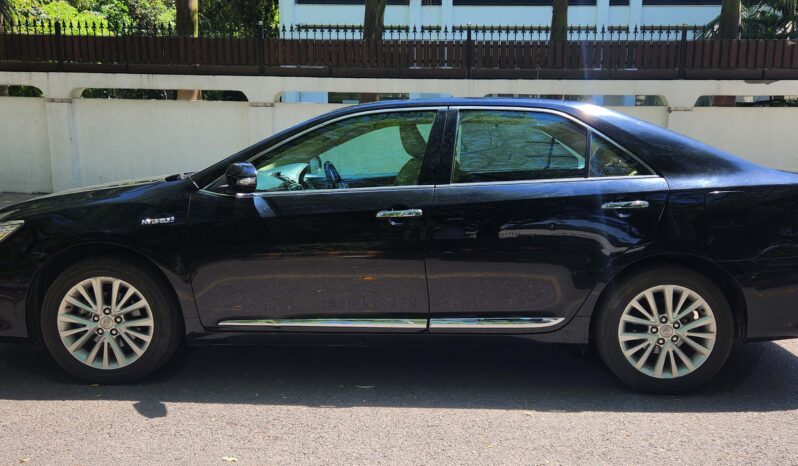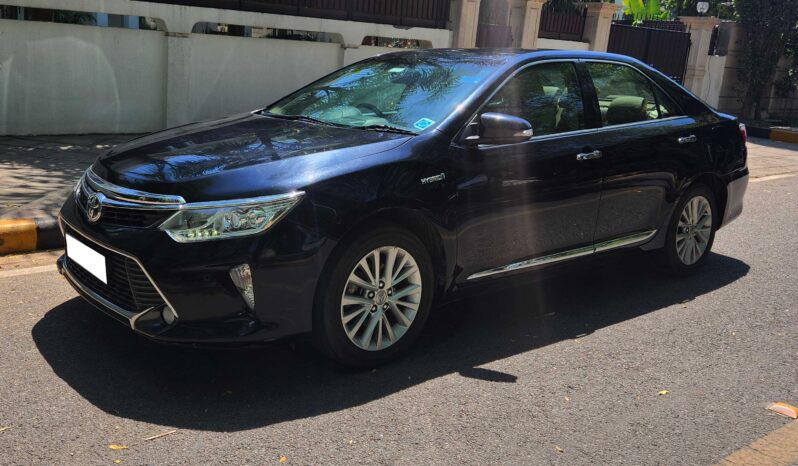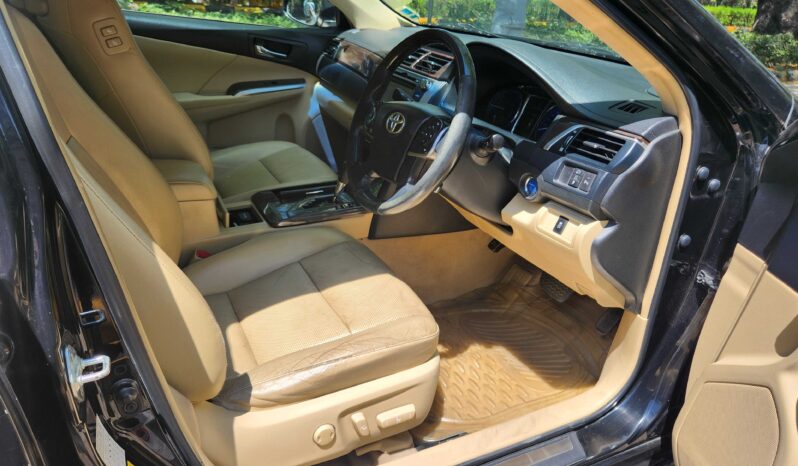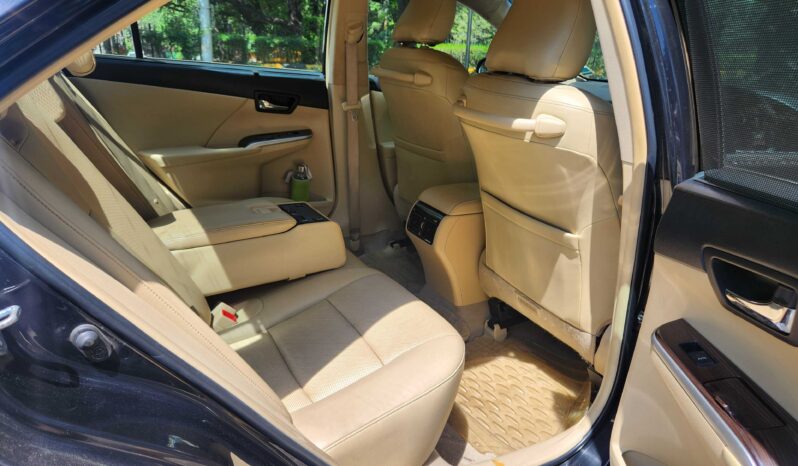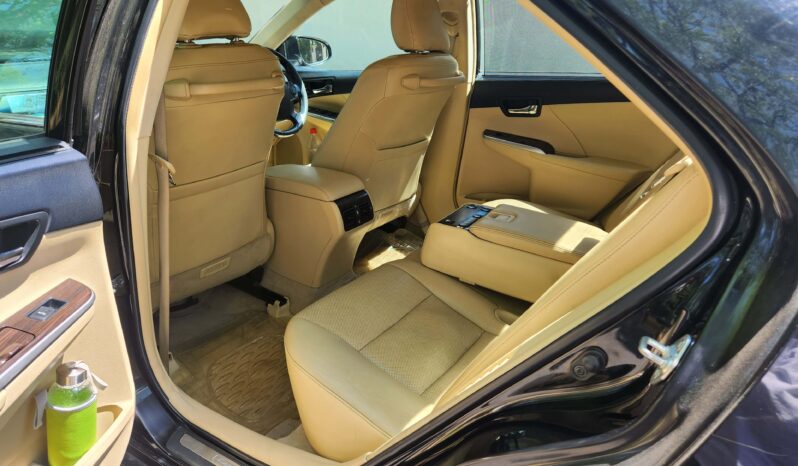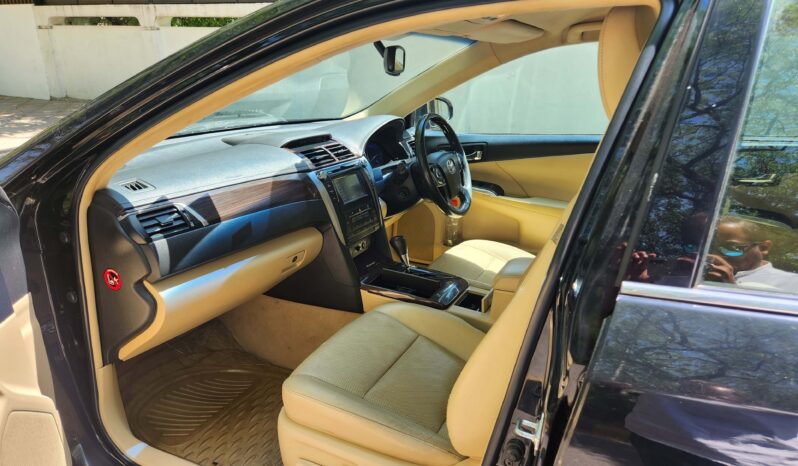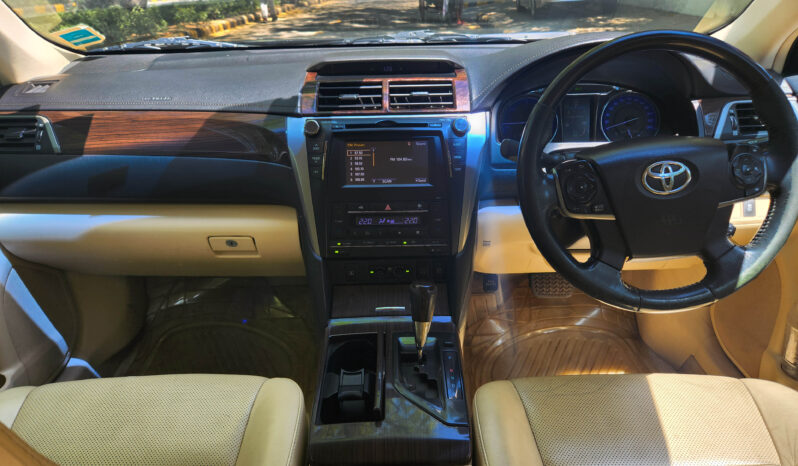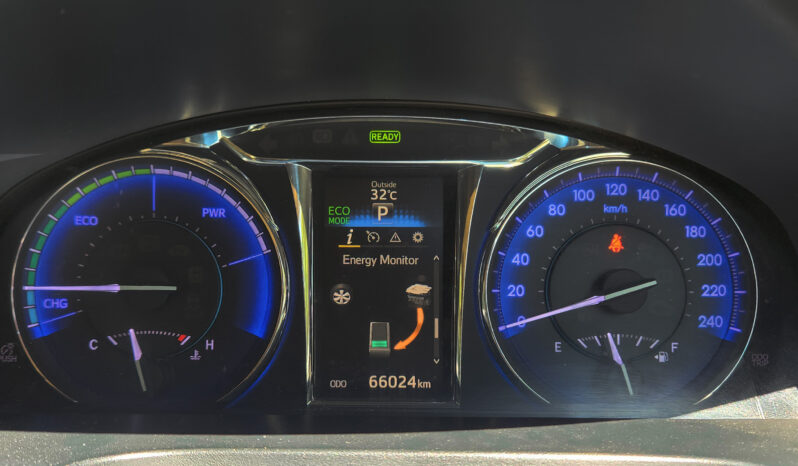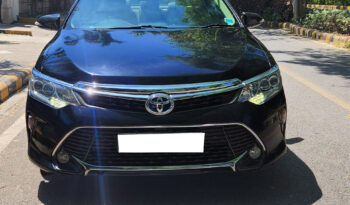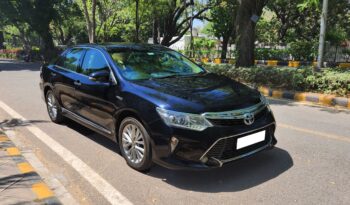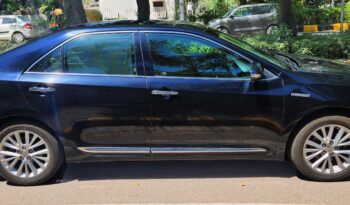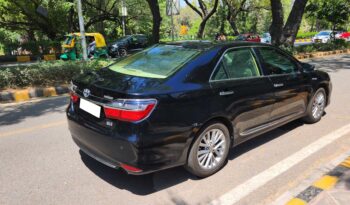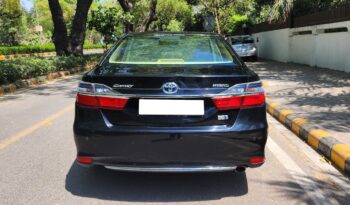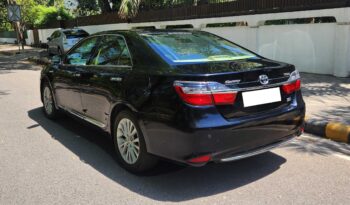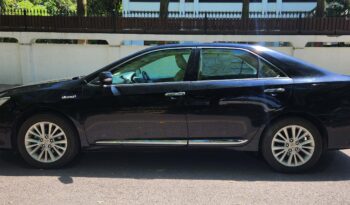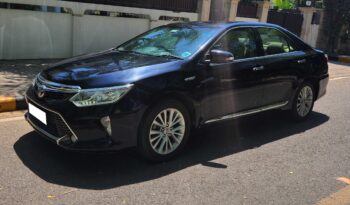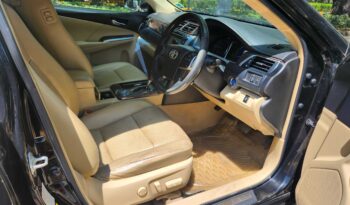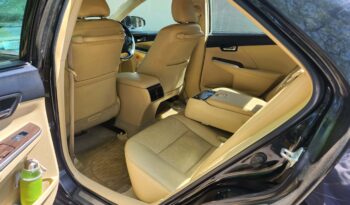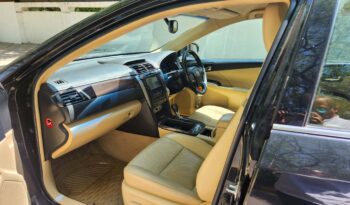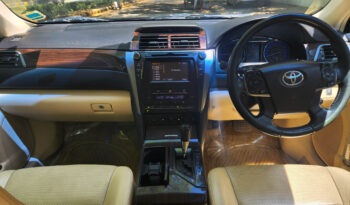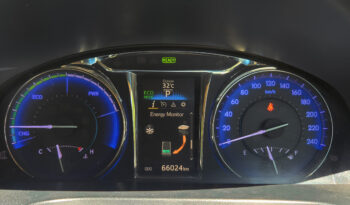What is it?
The Camry is probably one of Toyota’s most important cars. A massive seller in the US and China, it’s a car that gives Toyota a very healthy profit margin. This, however, is not the case in India. Here, the Camry is strictly a niche player. Ever the bridesmaid in the past to Honda’s Accord, things changed for the Camry when Toyota decided to assemble the car here. This brought a small shot of success. What took things to the next level was when Toyota became the first carmaker to locally assemble a hybrid car in India. This brought the price of the Camry Hybrid close to the regular car, and the move was so successful, 73 percent of all Camrys sold here today are hybrids. Customers love the fact that the vehicle is more efficient, greener, is packed with exclusive features, and rides and drives like a regular car.
This is why, when Toyota organised a test drive of the facelifted Camry, it brought mainly Hybrids. Now the look of Camrys in the past has always flitted between mild and wild, so it’s par for the course that a mild Camry is followed by, well, a wild one. And a wild one it is; just look at the size of that air dam! And the chrome surround that runs around the chin – it’s borderline over the top. Toyota designers have also moved the main, slot-like grille higher up on the nose, there are LED daytime running lights and there’s a LED main lamp as well. The top of the bonnet gets a mild power dome and the turning lights are placed at a jaunty angle in front of the wheel arch. Now, some designs don’t translate well into three dimensions, but not this one; it really works well. And so does the small change at the rear, where Toyota has made the bumper a bit wider at its base.
The insides are very similar to the pre-facelift car. This is one of Toyota’s best dashboards – interesting, beautifully layered and with improved materials. I particularly like how the wood and chrome accents work together, and the other good bit is that noting feels old fashioned. There’s also a new colour information display in the centre of the instrument panel, which is easily controlled from the steering wheel. As on the earlier car, the rear gets its own temperature setting, the rear seat backs recline up to eight degrees and while you are sat a bit low, rear seat pampering and comfort are first rate.
What’s it like to drive?
There aren’t too many changes from behind the wheel. The car still takes off beautifully with electric motor assist at low speeds, the instant dollop of torque from the word go feeling gratifying. And you do feel the combined force of 202bhp from the powertrain when you accelerate hard as well. What’s also particularly impressive is the seamless integration of electric and petrol units. Toyota has made a couple of changes – the cabin now is much better insulated from both road noise and engine sound and the guys responsible for the suspension have given it a bit more suppleness by recalibrating the valves in the dampers. So now low-speed ride is a bit better as well. The handling, however, has become a bit soggier. The Camry still turns in well and the poise of the car is still good; it’s just that it runs out of grip pretty soon.
Should I buy one?
Now mildly improved over the earlier version, the updated Camry Hybrid is a perfectly agreeable and practical large executive sedan. It’s now better suited to its role as a quasi-luxury car – it rides better, is better insulated and with a Rs 70,000 rebate via the Government of India’s FAME initiative, better value too. No, at Rs 31.92 lakh (ex-showroom, Delhi), the Camry Hybrid facelift isn’t exactly cheap, but consider the comfort and luxury this car can serve up, all the unique fuel-saving technology present, and the size and space on offer, and the Camry looks like quite an attractive proposition.

